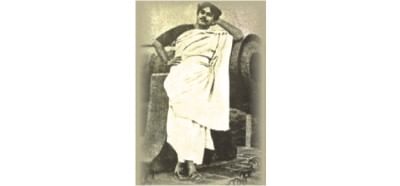Keeping the spirit of Nazrul alive

Kazi Nazrul Islam
On August 27 the nation observed the 34th death anniversary of National Poet Kazi Nazrul Islam. Both BTV and the private TV channels aired several special programmes on this occasion.
At a tender age of 19 (in 1917) the poet had rebelled against the British rule and wrote his outstanding poem “The Rebel” which earned him the title 'Rebel Poet'. Subsequently, through his write-ups, which include poems, essays, songs, novels and dramas, he raised his voice against every single form of repression and social divide. He condemned the behaviour of the rich towards the poor. He spoke about women's freedom and liberating them from the darkness of the veil.
In his Islamic songs, he articulated praises of Allah and his Prophet (PBUH). He depicted each and every ritual of Islam and wrote songs on Ramadan, Eid, Zakat, Shab-e-Barat, Ashura, which were hitherto unknown in Bengali literature. At that time he found the entire Muslim community in India lacking in spirit and to raise their morale and imbibe the seeds of progress, he sang out loud
Bajiche damama bandh re amama
Shir uchu kori Musalman
Similarly, in his Shyama Sangeet and other Hindu devotional songs, he profusely wrote about the various deities and weaved picturesque images of mythological events.
The underlying message was that each religion has its own beauty, own doctrines and one is not necessarily the opponent of the other. He clearly indicated that in times of deep crisis humanity is the religion to be practiced
Hindu an ora Muslim oi jiggashey kone jon
Kandari bolo dubichhe manob, shontan more mar
During the Hindu-Muslim riots in 1947, he wrote
Mora eki brinte duti kushum Hindu Musalman
Muslim tar noyonmoni Hindu tahar pran
In his romantic songs and poems, the lover Nazrul displayed his emotions in an unabated manner. From pangs of separation, to descriptive imagery of his beloved, with very sensitive analogies he comes across as a man full of passion. In his last speech he clearly mentioned that he had not come to this world to become a poet, he had come to seek love and the disappointment of not receiving true love had turned him into a poet (in “Jodi Aar Banshi Na Bajey”). My interpretation is that he was not only seeking love from a woman, it was the absence of love in society that turned him into a rebel, a poet, a writer -- seeking love for humanity and respect towards God's creations.
All these messages consolidated together speak of an amorous man who stood for the truth, who was fearless (“Aponare Chhara Korina Kahare Kurnish”), who believed in amity and world peace through practice of equality. We need to disseminate these messages every single day through our radio, TV, newspaper etc. Birthdays and death anniversaries are not enough to remember and uphold the philosophies of Nazrul, nor are they enough to impart these values amongst our young. His philosophies need to percolate and fill the air. We wish that his songs of harmony, of togetherness, of speaking out against oppression are aired again and again. From dawn to dusk Nazrul has given us enough material to fill the media. His songs, poems and writings would enable us to become greater human beings, to rise above discrimination and stand together for humanity.

 For all latest news, follow The Daily Star's Google News channel.
For all latest news, follow The Daily Star's Google News channel. 



Comments